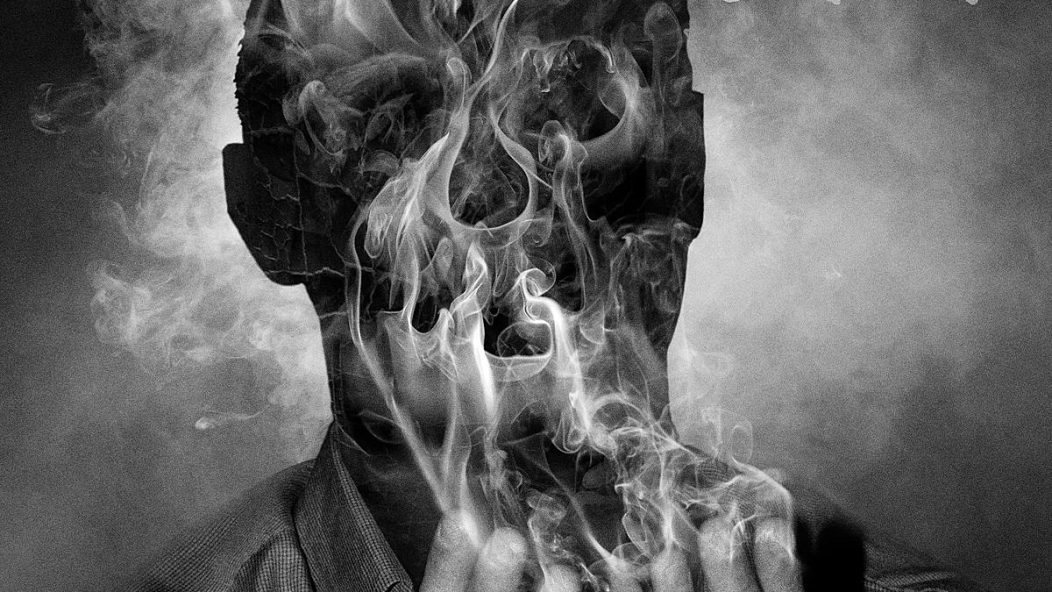
Andrew Sacher's Top Metal Albums of 2018
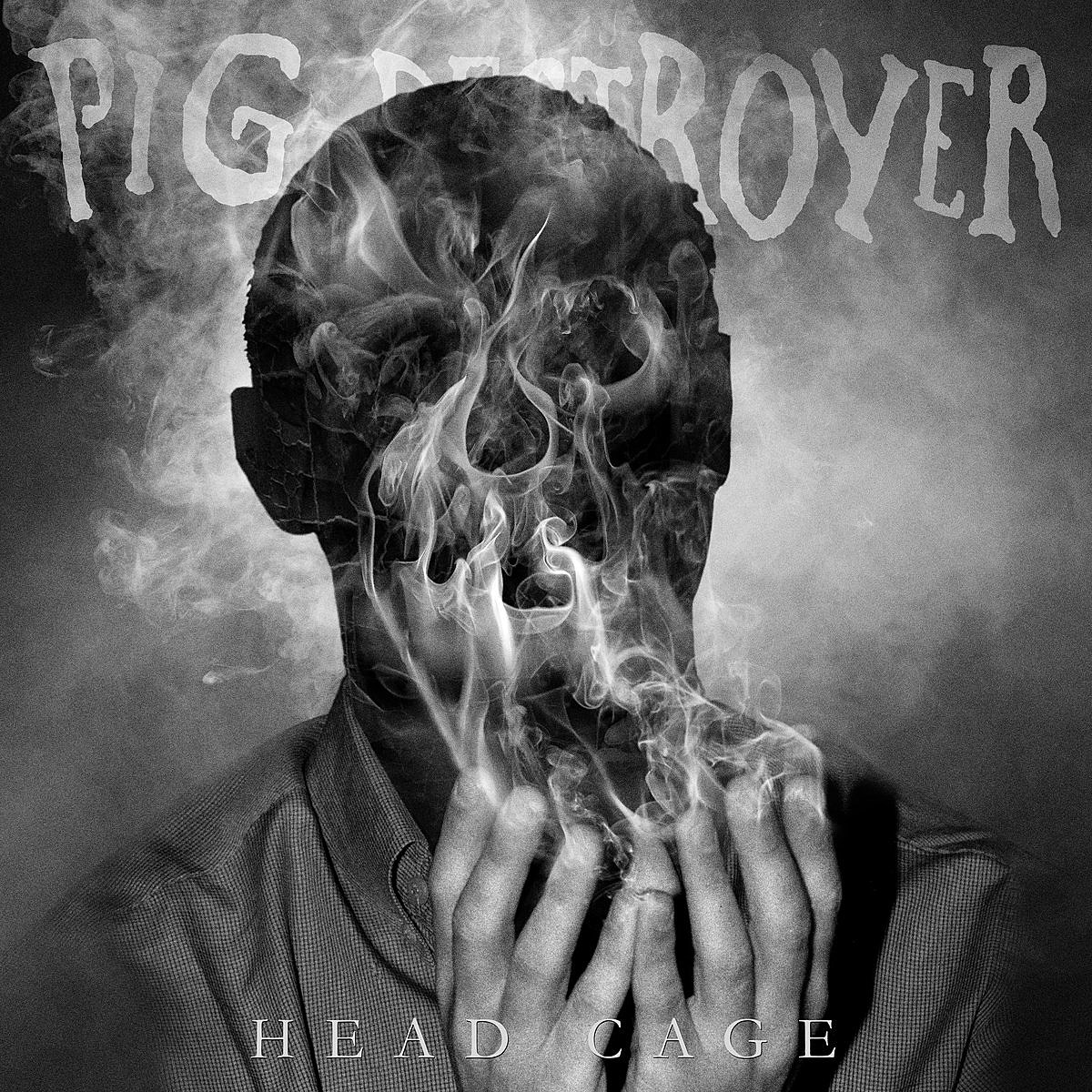
…
It’s been another great year for heavy music and music in general, and it has not been easy to narrow down a list of favorites. My top two have been pretty rigid since I heard them both, but I re-ordered the rest of this list a bunch of times and I’ll probably still be changing it and adding to it in my head for months after it’s cemented in Internet stone. (If I left something off, it’s also possible I just haven’t heard it — leave me suggestions in the comments!) As I point out every year, my taste in metal leans towards the punk side or the “heavy rock” side, so most of what you’ll find here fits that description in one way or another. On that note, I also have a list of top 2018 punk albums coming soon on BrooklynVegan, and I intentionally avoided any crossover between the lists, so stay tuned for that list for metal-leaning punk albums like Svalbard, Turnstile, War On Women, Birds In Row, and Portrayal of Guilt. I also decided to keep this list strictly metal, so I left off my metal-associated-but-not-actually-metal 2018 favorites like Daughters, Marissa Nadler, and Anna Von Hausswolff. With those caveats out of the way, continue on for my picks.
…
Honorable Mentions
15. Uada – Cult of a Dying Sun (Eisenwald Tonschmiede, USA)
14. Dodsrit – Spirit Crusher (Prosthetic, Sweden)
13. The Armed – Only Love (Throatruiner, USA)
12. Vein – Errorzone (Closed Casket Activities, USA)
11. Sylvaine – Atoms Aligned, Coming Undone (Season of Mist, Norway)
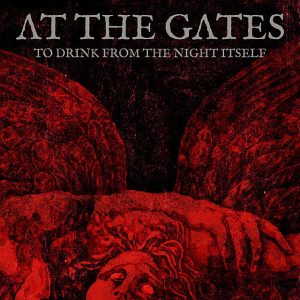
At the Gates’ 1995 masterpiece Slaughter of the Soul remains, in my humble opinion, about as good as melodeath gets. They just did everything right for that album. The riffs, the shrieks, the pummeling rhythms — it was all executed at a near-perfect level. For nearly two decades, At the Gates never even tried to follow it, but then they returned in 2014 with At War with Reality and proved they hadn’t lost their touch one bit. That album picked up where its 19-year-old predecessor had left off, and while there’s nothing quite like the original, At War with Reality came close. And To Drink from the Night Itself is even better. Maybe it was having the pressure gone since this time they were closing a four-year gap instead of a 19-year gap, or — strangely enough — maybe it was the absence of lead guitarist Anders Björler. Björler left the band before the making of this album, leaving vocalist Tomas Lindberg and bassist Jonas Björler to write it themselves, and maybe the situation left them feeling extra fired up. Whatever the case, To Drink from the Night Itself rips and it sounds like classic At the Gates while still sounding fresh. Plenty of the riffs on this one rival those of Slaughter of the Soul, and Lindberg still sounds like a wild animal. It happens more and more, but it still feels special to see a reunited band making music as crucial as At the Gates.
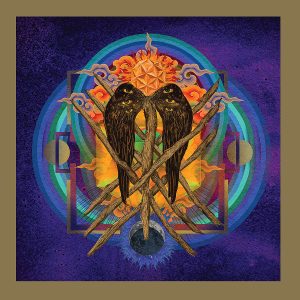
Like a lot of albums on this list, Our Raw Heart is best played start to finish. It’s an album that avoids quick thrills and instead takes its time with each idea, exploring all of the possibilities of a certain part of a song before moving on to the next one. It requires some patience, but it’s very rewarding if you give it the time it deserves. It’s an album that I’m in awe of every time I hear it. And while there’s no lack of punishing sludge riffage, it’s an album that has an aching, beautiful sound to it rather than a brutal one (perhaps due to the medical issues Mike Scheidt faced before making it). It’s the eighth album from a band who formed over two decades ago, yet it feels like a new beginning. It’s not everyday that you hear a veteran band who sound this much like they’ve still got something to prove.
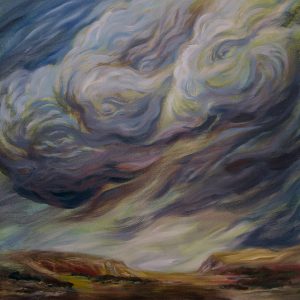
Chapel of Disease aren’t the only modern metal band who incorporate classic rock into their sound, but they might be the only one I’ve ever compared to Dire Straits. It’s only for a short period of time (around the 5:45 mark in album opener “Void of Words”), but it’s one of many times these guys show off the kinds of guitar nerds they are. They’ve got flashy 1970s hard rock solos, and they’ve got clean, dusty blues. It’s like they studied Rolling Stone‘s 100 Greatest Guitarists list and decided to squeeze the entire list into an album of death metal songs. Laurent Teubl’s raw, OSDM-style scream is pretty brutal too, but the vocals are almost a footnote of these songs. It’s all about Laurent and Cedric Teubl’s intertwining leads, which play out like a game of Guitar Hero that’s actually fun to listen to. And the “fun” factor is key. To quote Radiohead, anyone can play guitar, and we’ve all heard enough amateur shred-masters on YouTube and at Guitar Center. It’s not enough to have fast fingers; Chapel of Disease also write killer, catchy melodies, and their songs offer adrenaline rush after adrenaline rush. This is guitar nerdom done right.
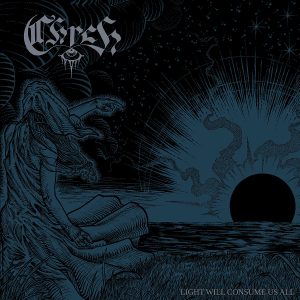
As fantastic as the newest YOB album is, an album in that same style that I liked even more this year came from a much newer band who recently toured with YOB: Sacramento’s CHRCH. As YOB once were, CHRCH are signed to Neurosis’ Neurot label (this is their first album for the label and second overall), and like YOB and Neurosis, CHRCH blend post-rock, sludge metal, soaring clean vocals, burly screams, and more and come out with an album that takes its time but remains gripping from start to finish. You’ve heard this kind of thing before, but CHRCH find new and exciting ways to make it feel fresh. Eva Rose is a fantastic singer and a fantastic screamer, and the band’s guitarwork is super interesting. They’ve got long stretches where it’s just quiet, clean guitar — almost in Explosions in the Sky territory — and those passages are just as captivating as the titanic sludge metal parts, or the blasts of atmospheric black metal that come in towards the end of album closer “Aether.” CHRCH blend all this stuff seamlessly, and they do it with the expertise of a band who’s been around twice or three times as long as they have. Going by how strong of a band they already are, I suspect CHRCH have a very bright future ahead of them.
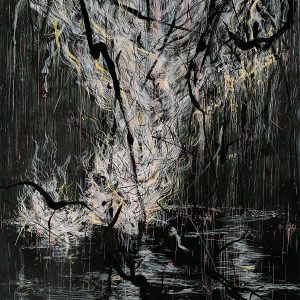
While Aaron Turner has stayed active with a handful of projects in recent years, Sumac has in my opinion always been the best substitute for the sorely-missed Isis. But with all due respect to the band’s very strong first two albums, Love In Shadow is the first time they’ve gone way beyond that. Love In Shadow is my favorite album Turner has made since Isis called it quits almost a decade ago, and it’s like little else in that band or Sumac’s discography. It’s a truly genre-defying album that has plenty of the towering, sludgy post-metal that Turner’s long been known for, but also noise rock, ambient music, free jazz, psychedelic rock, and more. They do it all in four tracks, three of which are over 15 minutes and one of which is over 21 minutes, and each track is more like a journey than a typical song. There are super heavy parts on this album, but it’s not an album that’s about constant fury. The lengthy, more atmospheric parts are just as crucial to the overall project as the heavy parts, and they only make the heavy parts hit even harder when they come back in. It reminds me more of Sonic Youth in spirit than a typical sludge metal band, and it’s a thrill to hear Aaron Turner applying that kind of free improv approach to the colossal sludge he’s spent his career perfecting.
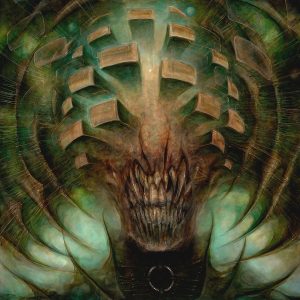
Horrendous have been super hyped for a while, but I was never as into their OSDM revival as a lot of others were. It was nice to see them go in a slightly proggier direction on 2015’s Anareta, but Idol is where it really all clicked for me. This time around, Horrendous don’t really sound like they’re reviving anything. They sound fresh and modern, and they kick more ass than ever. Idol is Horrendous’s most polished album (but not too polished) and they clean up good. The shinier production only makes them sound heavier; their riffs used to be blasts of fury but now they’re like piledrivers, burrowing their way into your eardrums. The songs are also more spacious, giving Horrendous more room than ever for their vocals to shine. And that’s a big part of what sets this album apart from its predecessors. The individual songs really stand out more than they have in the past, like closer “Obolus,” which brings in memorable clean vocals and sounds like it could be an underground metal staple for years to come. Most importantly, though, Idol is the album where Horrendous really set out to leave their mark on music history. Even if you’re really, really good at it, you’re gonna be a blip if you sound — to quote Horrendous — “like Autopsy meets Death or something.” Idol sees Horrendous aiming to find a sound they can call their own, and getting it right.
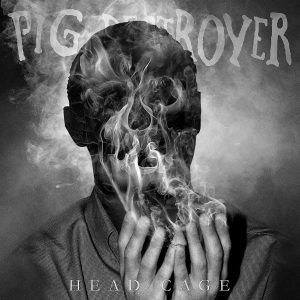
Two decades into a career of making some of the finest grindcore of the 21st century, Pig Destroyer added a bassist, tore open their sound, and made their most accessible album yet. PD have slowed down and pulled in sounds from outside of grindcore for a while now, but never in the way they did on Head Cage. They’ve still got some grindy stuff in the mix, but Head Cage is mostly well-oiled metalcore, the kind that encourages you to stomp around in the pit and shake your first as you yell every single lyric back in Pig Destroyer’s face. Not that you could never do that for Pig Destroyer before, but Head Cage is designed for it — past Pig Destroyer albums were designed to make it feel like you stuck your head inside of a blender. They’ve also got these big, detuned, air guitar-worthy riffs that bring you back to metalcore’s early 2000s popularity period, but in a way that’s even better than you remember. Of all the modern hardcore bands taking cues from that era, who’d’ve thought one of the best 2018 albums to do so would come from the band who released Prowler in the Yard during that very era? Head Cage was an unexpected reinvention from a band who could’ve decided they had nothing left to prove and still gone down as legends. Thank god they didn’t, and instead gave us one of the most exhilarating albums of the year.
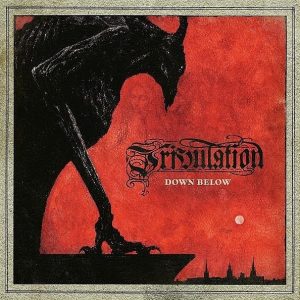
Tribulation’s third album, 2015’s The Children of the Night, is going down as a modern metal classic (in my book at least). It took the black and death influences of their first two albums and added in catchy, classic rock riffs and groovy rhythms that harnessed the good-times hedonism of the Dazed and Confused era, while still sounding dark and evil. It’s the perfect balance. Down Below doesn’t quite parallel its predecessor, but it comes pretty damn close. It also doesn’t try to top its predecessor, which is probably a good thing. Instead of going for bigger or poppier, Down Below sees Tribulation going for weirder. It’s darker, more atmospheric, more influenced by late 1960s prog and psych than by late 1970s arena rock. The riffs will still get stuck in your head — especially on major standout “Nightbound” — but where The Children of the Night riffs warranted comparisons to pop-era Judas Priest, Down Below riffs would sound more at home next to “Lucifer Sam”-era Pink Floyd. Down Below is also produced less like a rock album than The Children of the Night, and it’s certainly not produced like a metal album. The Children of the Night is fun and catchy, but it’s still got raw, driving distortion; Down Below could almost be called “ethereal.” It’s a gothy, moody album that pairs well with the darkwave and horror score renaissance we’ve been experiencing lately. It’s proof that Tribulation didn’t need to make another giant leap forward to make one of the best records of the year for the second time in a row. A slight left turn did just fine.

It’s hard to break ground when you play a genre of music that’s often categorized as “traditional doom metal”; the point is to honor tradition, not innovate. But for the past few years, Windhand have been striking a brilliant balance between honoring the Sabbathian tradition of slowed-down, fuzzed-out riffage, and looking outside of doom metal for other influences. On their fourth album (and best so far) Eternal Return, each of the many facets of Windhand’s sound come through more strongly and more pronounced than ever. The riffs that drive the songs could still fit on Master of Reality (or, maybe more accurately, on Dopethrone), but Dorthia Cottrell’s choruses rival Chris Cornell and Layne Staley. Seattle grunge — which comes partially from doom metal in the first place — has always been a noticeable influence on Windhand’s music, but they’ve never written songs that actually had the crossover potential as grunge until now. Dorthia’s voice and lyrics are both stronger than ever and more in the forefront than ever. This is a modern, not-cheesy metal album that you can actually sing along to, and we could use more of those. It’s also a genuinely psychedelic album, with enough lava-lamp-and-incense-ready jams to get your average Deadhead on board, and Eternal Return has good folk songs too. As great as the heavy songs are, one of my favorites on Eternal Return is “Pilgrim’s Rest,” which crackles and sways like Nirvana covering Leadbelly. Eternal Return has all the same ingredients as the band’s last couple albums, but it’s pulled off in such a way that instead of sounding like X + Y + Z, it sounds distinctly and unmistakably like one thing: Windhand.
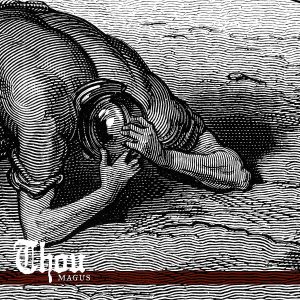
For me, it was the year of Thou. After making us wait a long four years for a proper follow-up to 2014’s great Heathen, they surprise-released The House Primordial, which at first a lot of us thought was the new Thou album (myself included). It turned out to be the first entry in a trilogy of EPs, all in a different genre, and then Thou followed that trilogy with their new full-length, Magus. The House Primordial has some of Thou’s noisiest, harshest music, the Inconsolable EP has some of their quietest and slowest, and the Rhea Sylvia EP dives fully into the melodic grunge influences Thou have always had. As a child of the 1990s and someone who got into heavy music through grunge, I’m partial to Rhea Sylvia, but Magus is truly Thou’s crowning achievement of 2018. Thou took all of the sounds of those three EPs, and then some, and they came out with the most towering, majestic metal album I heard all year. There are parts that are gorgeous, and there are parts that sound like nails on a chalkboard, and it all comes together in a very natural way. Magus is an album that really works best when you sit down and play the whole thing start to finish, and with its 75- minute runtime and my hectic schedule, I admit I didn’t do that as often as I wanted to. But every time I had a moment to really dedicate myself to this beast of an album, something magical happened.











